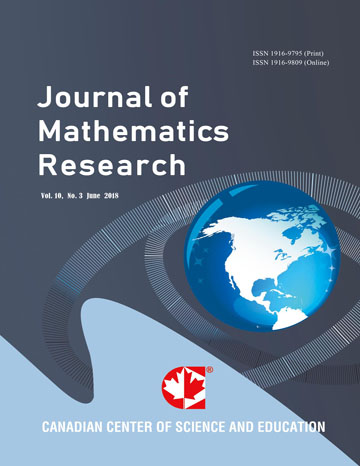Arithmetic Triangle
- Luis Ferreira
Abstract
The product of the first $n$ terms of an arithmetic progression may be developed in a polynomial of $n$ terms. Each one of them presents a coefficient $C_{nk}$ that is independent from the initial term and the common difference of the progression. The most interesting point is that one may construct an "Arithmetic Triangle'', displaying these coefficients, in a similar way one does with Pascal's Triangle. Moreover, some remarkable properties, mainly concerning factorials, characterize the Triangle. Other related `triangles' -- eventually treated as matrices -- also display curious facts, in their linear \emph{modus operandi}, such as successive "descendances''.
- Full Text:
 PDF
PDF
- DOI:10.5539/jmr.v9n2p100
Index
- ACNP
- Aerospace Database
- BASE (Bielefeld Academic Search Engine)
- Civil Engineering Abstracts
- CNKI Scholar
- DTU Library
- EconPapers
- Elektronische Zeitschriftenbibliothek (EZB)
- EuroPub Database
- Google Scholar
- Harvard Library
- IDEAS
- Infotrieve
- JournalTOCs
- MathGuide
- MathSciNet
- Open policy finder
- RePEc
- ResearchGate
- Scilit
- Technische Informationsbibliothek (TIB)
- The Keepers Registry
- UCR Library
- Universe Digital Library
- WorldCat
Contact
- Sophia WangEditorial Assistant
- jmr@ccsenet.org
